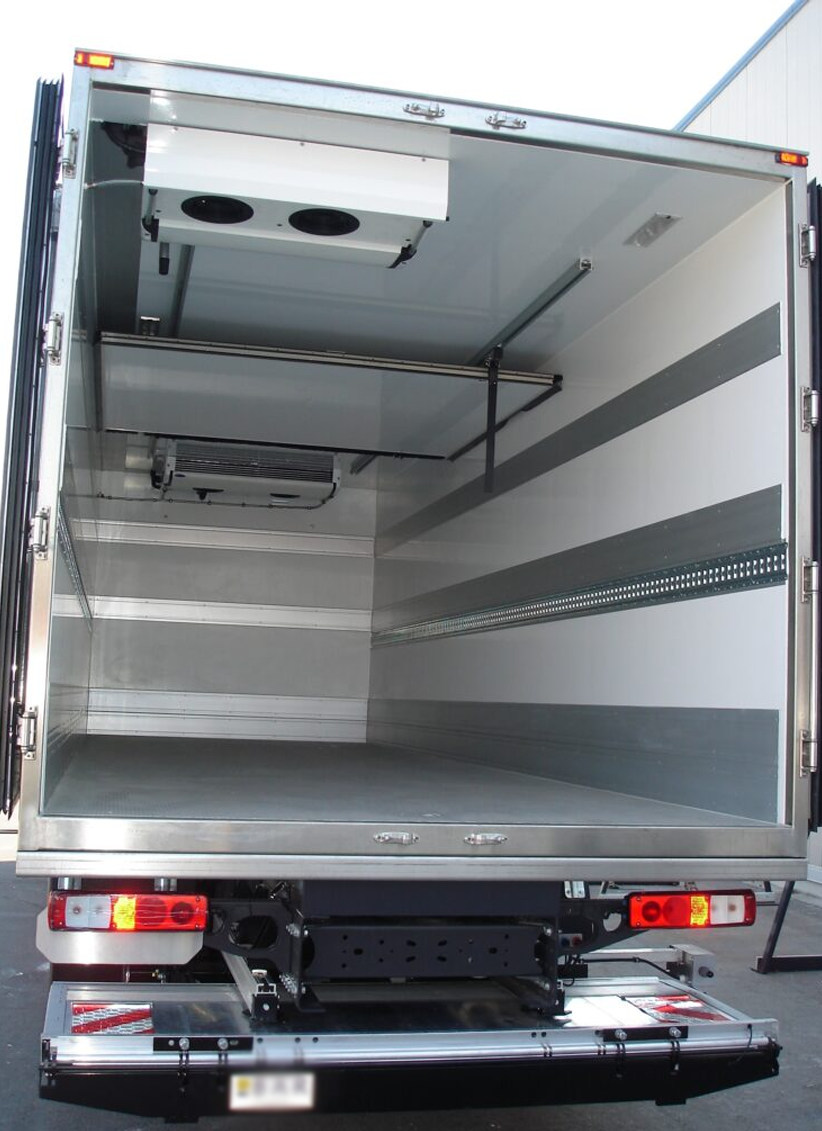FAQ
Accreditation
Documentation and forms
What does the inspection cover?
Procedure
Appeals and complaints
Useful links
Contact information
The COCH Inspection Unit specializes in conducting evaluations of production facilities that manufacture products covered by the requirements of the Agreement on the International Transport of Perishable Foodstuffs (ATP) and special means of transportation for such transport. Our mission is to ensure that products and means of transportation meet the highest international safety and quality standards.
The COCH Inspection Unit is accredited by AK47, which confirms our ability to independently assess compliance with ATP requirements and provide high quality inspection services. Our accreditation ensures that we operate in accordance with international standards and guidelines, which confirms our credibility and competence in the industry.
Who is the offer aimed at?
Our offer is primarily directed at manufacturers of products covered by the ATP Agreement, particularly:
- Manufacturers of thermally insulated transport equipment: Including vans, truck bodies, trailers, semi-trailers, containers, and tankers.
- Manufacturers of mechanical cooling and/or heating devices: Such as refrigeration units used in thermally insulated transport equipment.
We are ready to provide comprehensive inspection and certification services that meet the highest international safety and quality standards, supporting you in complying with ATP Agreement requirements and improving standards in the production and transport of food products.
What are the benefits of inspections?
Our inspection services offer several key benefits:
- Reliability: Our organization ensures high reliability through independent assessment of product compliance with ATP Agreement requirements.
- Compliance Verification: We provide verification of the compliance of your products with ATP standards, crucial for ensuring safety and quality.
- Competence Certification: Our accreditation attests to our competence and practices, giving you confidence in our professional approach.
- Competitive Advantage: Utilizing our services grants you a competitive edge in the market by meeting international standards.
- Access to International Markets: Our certifications open doors to international markets, enabling the expansion and growth of your business.
On what basis are inspections conducted?
The inspection of manufacturing facilities producing products is conducted in accordance with COCH Procedure PJI-06 – Inspection of Organizational and Technical Conditions for Manufacturing Products in Compliance with the ATP Agreement, Issue No. 1, dated May 15, 2024, and the requirements of the Agreement on the International Carriage of Perishable Foodstuffs and on the Special Equipment to be Used for such Carriage (ATP).
Legal Basis for Inspection
The inspection procedure is based on current regulations and specifications outlined in the following documents:
- COCH Procedure PJI-06: This document details the specific steps and requirements for inspecting the organizational and technical conditions of manufacturing products in compliance with the ATP Agreement.
- Agreement on the International Carriage of Perishable Foodstuffs and on the Special Equipment to be Used for such Carriage (ATP): This agreement sets forth international safety and quality standards that must be met by manufacturers and transporters of perishable foodstuffs during transit.
By adhering to these established procedures and regulations, we ensure that the manufacturing processes meet the highest standards of safety, quality, and compliance, thereby supporting the overall integrity and reliability of perishable food transport.
Detailed information about the inspection process
What does the inspection cover?
The inspection process includes a comprehensive review of the organizational and technical conditions of facilities involved in the production of thermally insulated transport means or mechanical refrigeration and/or heating units (refrigeration units).
Key Areas of Verification:
Organizational Structure:
- Implementation of a quality management system.
- Procedures for selecting material suppliers/subcontractors.
- Quality control of products.
- Maintenance of records/registers.
- Employee qualifications and authorizations.
Production Process:
- Detailed examination of the production methods and workflows.
Production Equipment:
- Assessment of the equipment used in the manufacturing process.
Measuring Instruments:
- Supervision and calibration of measuring instruments.
Materials Used:
- Evaluation of the insulation materials and components utilized in production.
Production Documentation:
- Review of documentation related to the production process.
Product Quality Compliance:
- Ensuring products meet acceptable quality levels.
Compliance with ATP Requirements:
- Verification that products comply with the standards of the ATP Agreement.
Product Markings:
- Inspection of the labeling practices used on products.
Special attention is paid to ensuring the repeatability of production in line with the specifications of standard test protocols for transport means or refrigeration/heating units. This includes checking that the manufacturing processes consistently produce products that meet both quality and compliance standards as per the ATP Agreement.

What is the procedure for obtaining the certificate?
The procedure for obtaining a certificate from the COCH Inspection Unit is transparent and consists of the following stages:
Submission of the application along with the required attachments:
- Filling out the application form and providing the necessary documents and information.
Review of the application and preliminary verification of submitted documents:
- Checking the completeness and accuracy of the submitted materials.
Registration of the application and signing of the agreement for the assessment:
- Registering the application and signing the agreement concerning the conformity assessment.
Conducting an inspection of the production plant:
- A physical inspection visit to the production plant to assess compliance with the ATP Agreement requirements.
Detailed evaluation of documentation:
- Analyzing the collected information and documents in the context of regulatory requirements.
Preparation of the report:
- Compiling a detailed inspection report, including assessment results and recommendations.
Decision on the issuance of the certificate:
- Based on the collected data and assessment, making a decision on awarding the certificate.
Issuance of the certificate and supervision:
- In case of a positive evaluation, issuing a conformity certificate (in both Polish and English) valid for three years. Additionally, providing the inspection report and a license to use the marking referring to the completed assessment.
This process ensures that products and means of transport meet the highest safety and quality standards, enabling access to international markets and increasing competitiveness in the global market.

Appeals and Complaints
Information on the procedure for handling complaints and appeals can be found at this link.
Additional capabilities

ATP / FRC studies
Have ATP / FRC testing for transportation assets

Good Distribution Practice (GDP)
View Good Distribution Practices (GDP) certification offerings
Discover safety in every detail - pressure equipment inspections with COCH!
Discover safety in every detail with professional pressure equipment inspections offered by COCH. Our advanced services ensure reliability and full compliance with the requirements of EU directives.
Safety confirmed by accreditation
View the offer of the Certification Department
Accreditation
Quality accreditation - a guarantee of trust
Inspection Unit AK 044 is accredited by the Polish Accreditation Center and specializes in assessing compliance with Pressure Equipment Directive 2014/68/EU.
Our team consists of qualified and experienced specialists who offer comprehensive assistance in the certification and conformity assessment process of pressure equipment. With our services, we provide customers with reliable and professional service at every stage of cooperation.




















































